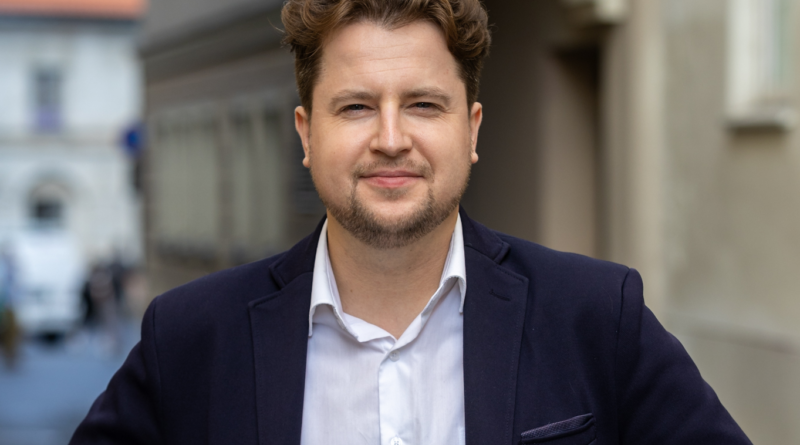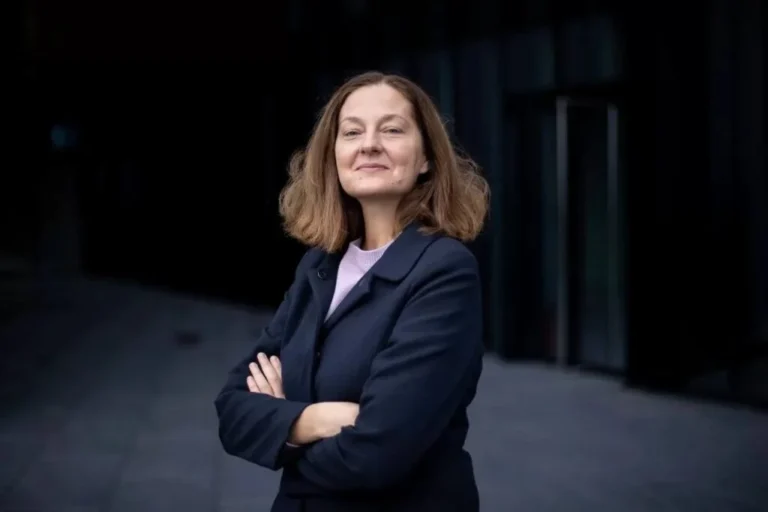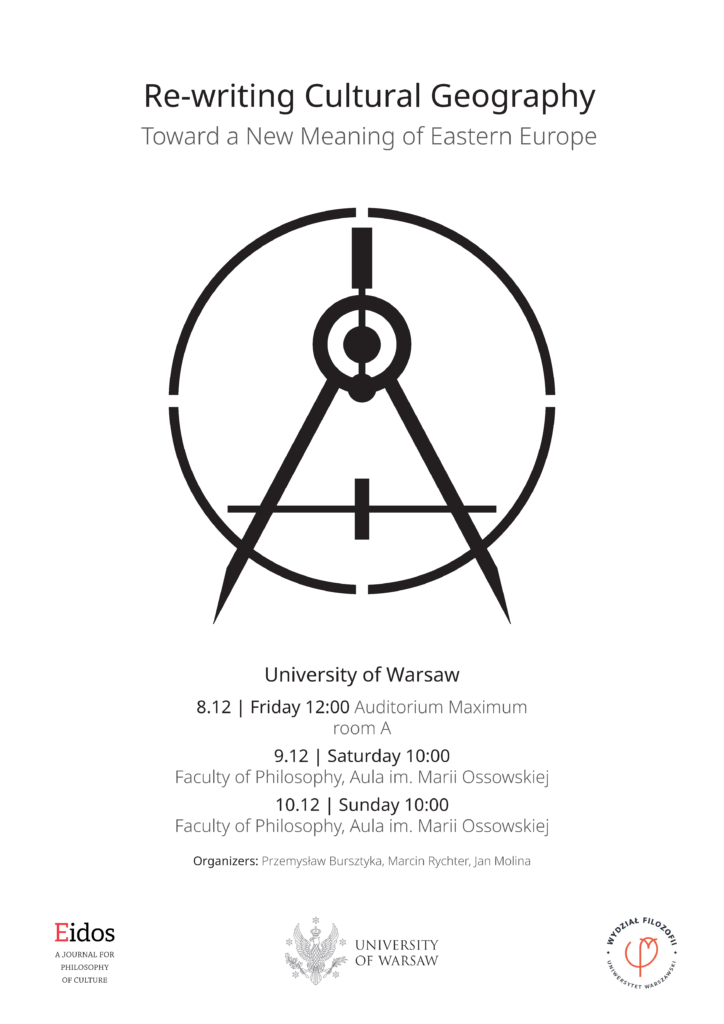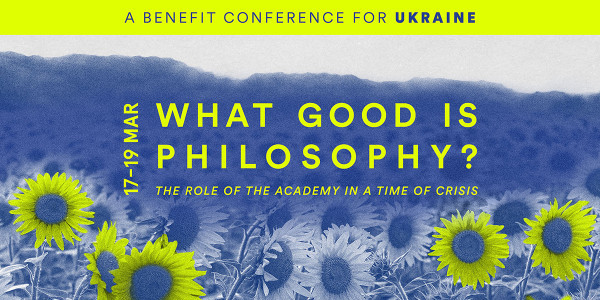Events
Dr. Laurynas Peluritis on Cultural Synthesis and Tolerance (March 20, 2025)

The European Centre for Philosophy of Culture (Faculty of Philosophy, UW) invites for the lectures by Dr. Laurynas Peluritis (Vilnius University). Our guest will deliver two lectures: “Why Should We Talk About Cultural Synthesis?” and “Is Tolerance a Virtue?” on March 20, 2025 at our faculty (Krakowskie Przedmiescie 3).
- Why Should We Talk About Cultural Synthesis?
Is cultural synthesis a necessary condition for the survival and flourishing of national identities, or is it merely a theoretical construct that struggles to find relevance in today’s fragmented world? In an era of geopolitical instability, resurgent nationalism, and the erosion of common cultural narratives, the idea of synthesis remains contested. Does it offer a way forward for societies seeking to balance tradition and modernity, national distinctiveness and cosmopolitan openness?
In this lecture, Dr Laurynas Peluritis will explore the philosophical and historical foundations of cultural synthesis, focusing on Stasys Šalkauskis (1886–1941), one of Lithuania’s most influential modern thinkers. Positioning Lithuania at the crossroads of East and West, Šalkauskis argued that national cultures should neither isolate themselves nor passively assimilate into dominant civilisational forces. Rather, he proposed a dynamic synthesis of universal and particular elements, in which national identity remains distinct yet enriched through engagement with broader intellectual currents.
Through a discussion of Šalkauskis’s ideas, this lecture will explore their implications for contemporary Central and Eastern Europe, a region historically shaped by cultural clashes, imperial legacies, and shifting political boundaries. How can we rethink cultural synthesis today, particularly in relation to nationalism, globalization, and European integration? Is synthesis a sustainable model for cultural and political development, or does it risk diluting national identity in pursuit of unattainable harmony? This lecture will engage with these questions through the lenses of political philosophy, intellectual history, and contemporary geopolitical challenges.
Time: 20.03, 1:15-2:45pm
Place: Faculty of Philosophy, Krakowskie Przedmieście 3, room 209
- Is Tolerance a Virtue?
What is tolerance in political and social life? Is it a fundamental virtue necessary for sustaining pluralistic societies or merely a pragmatic concession to preserve stability? Drawing on classical philosophy, modern political thought, and contemporary debates, Dr. Laurynas Peluritis will examine the origins of tolerance, its role in liberal democracies, and the challenges it faces today.
The lecture will explore whether tolerance is inherently a moral good or whether it must be evaluated in relation to external principles such as justice, power, and social cohesion. Is tolerance always a force for good, or can it serve as an instrument of oppression? Thinkers like Herbert Marcuse, in his critique of “repressive tolerance,” have argued that it can sometimes reinforce existing power structures rather than challenge them. How should societies navigate the tension between allowing diverse perspectives and preventing harm? Where, if anywhere, can we draw the limits of tolerance?
By engaging with historical and philosophical perspectives—from classical virtue ethics to contemporary liberal theory—this lecture will critically assess whether tolerance should be considered a fundamental virtue or a contingent, context-dependent principle shaped by external political and social imperatives.
Time: 20.03, 3-4:30pm
Place: Faculty of Philosophy, Krakowskie Przedmieście 3, room 209
Contact: dr Przemysław Bursztyka (pbursztyka@uw.edu.pl)
Dr. Laurynas Peluritis is an Assistant Professor at the Institute of Philosophy at Vilnius University and a lecturer in the Faculties of Philosophy and History. He is also the Head of Research and Analytics at the Institute of European Right, a political think tank in Vilnius. In 2022, he defended his interdisciplinary dissertation, “The Cave and Two Suns. Philosophy in Soviet Lithuania (1944–1986). Institutions, Personalities, Ideas”, at the Faculty of History at Vilnius University. His research focuses on political philosophy, the history of ideas and concepts, and Lithuanian philosophy. In 2024, he was awarded the State Independence Scholarship by the Seimas (Parliament) of the Republic of Lithuania for his research project “State-Building as a Cultural Task in a World of Fragile Relationships: The Reactualisation of the Cultural Philosophy of Stasys Šalkauskis.”
From Shared Emotions to Shared Agency: The Emergence of a New Collective Political Subject in the Belarusian Protest Movement of 2020 (January 16, 2025)

Invitation for the lecture “From Shared Emotions to Shared Agency: The Emergence of a New Collective Political Subject in the Belarusian Protest Movement of 2020” by Professor Tatiana Shchyttsova
European Centre for Philosophy of Culture (Faculty of Philosophy, UW) invites for the lecture
From Shared Emotions to Shared Agency: The Emergence of a New Collective Political Subject in the Belarusian Protest Movement of 2020
The lecture will be delivered by
Professor Tatiana Shchyttsova
(European Humanities University, Vilnius)
Abstract:
The Belarusian protest movement of 2020, triggered by the fraudulent results of the presidential elections and the use of brutal force by the authorities, was the most important event in the history of independent Belarus. Although it did not lead to a change in the authoritarian regime, it is not without reason defined in terms of revolution. A radical social transformation brought about by the Belarusian protests was the formation of a new collective political subject, a solidary democratic community. Given that most of the protesters were apolitical before 2020, it is worth asking: how did a mass of politically indifferent people become capable of unprecedented political solidarity and a strong commitment to certain values and goals? In answering this question, the lecture will shed light on the genesis and key characteristics of the new democratic ‘we’, which proved to be creative and promising in many ways.
Date: January 16th,4:45-6:15pm
Place: Krakowskie Przedmieście 3, room 4
Contact: dr Przemysław Bursztyka (pbursztyka@uw.edu.pl)
Tatiana Shchyttsova, Dr. habil. in Philosophy, is Professor at the Department of Social Sciences and and Head of the Center for Research of Intersubjectivity and Interpersonal Communication at the European Humanitites University, Vilnius (the Belarusian university in exile). Throughout her academic career, Tatiana Shchyttsova has received various international research fellowships including the Alexander von Humboldt Foundation Fellowship and has given a number of guest lectures at various European academic institutions (the Institute for Human Sciences in Vienna, the University of Freiburg, the University of Helsinki and many others). She is editor-in-chief of the journal for philosophy and cultural studies Topos. Since October 2021, she has been Adviser on Education and Science to the President-elect of Belarus Sviatlana Tsikhanouskaya.
International conference IMPRISONED RATIONALITY AND PHILOSOPHY IN PRISON (Vilnius, September 20-21, 2024)
The conference is held in solidarity with the philosopher Uladzimir Mackievič, who was innocently imprisoned in the prison of the Belarusian dictator A. Lukashenka.

Mackievič together with a sociologist Tatsiana Vadalazhskaya created the “Flying University” (Лятучы ўніверсітэт) – the last independent university in Belarus, which was focused on the development of critical thinking and its practical implementation. The Flying University (Polish: Uniwersytet Latający, less often translated as “Floating University”) – is a system of underground university in times of repressions. The leader and organiser of Flying university and flying education in Minsk was Uladzimir Mackievič.
The conference is organized by the Vilnius University Institute of Philosophy and the Faculty of Philosophy of University of Warsaw.
Vilnius (Lithuania), September 20-21, 2024
The more detailed description of the conference
Conference Chairman:
Jonas Dagys (Dean of Faculty of Philosophy at Vilnius University)
Members of the organising board:
Przemysław Bursztyka (Editor-in-Chief of Eidos. A Journal for Philosophy of Culture; University of Warsaw).
Tatiana Shchyttsova, (European Humanities University, Vilnius; Adviser on Education and Science to the Belaruasian president-elect Sviatlana Tsikhanouskaya)
Andrei Yahorau (Speaker of Coordination Council of Belarus)
Gintautas Mažeikis, (Vytautas Magnus University, Kaunas)
Marcin Rychter (Deputy Editor-in-Chief of Eidos. A Journal for Philosophy of Culture; University of Warsaw)
Jan Molina (Eidos. A Journal for Philosophy of Culture; University of Warsaw)
Responsible administrator of the conference: Laurynas Peluritis (Vilnius University)
For our freedom and yours!
Re-writing Cultural Geography: Toward a New Meaning of Eastern Europe – invitation for the international conference (8-10.12.2023)

The Department of Philosophy of Culture of the Faculty of Philosophy UW and „Eidos. A Journal for Philosophy of Culture” invite for the international conference:
Re-writing Cultural Geography: Toward a New Meaning of Eastern Europe
The conference brings together Polish, Lithuanian, Latvian, Ukrainian, and Belarusian philosophers.
The aim of the conference is a philosophical reconceptualization of the category of Eastern Europe as a particular cultural form, i.e., a specifically determined way of living, experiencing, and self-understanding, localized in a certain space. The existing geographical, political, economic and even culturalist categorizations seem to be incoherent, often mixing criteria brought together from completely different dimensions. It is of the utmost importance to provide/work out a set of philosophical concepts that will allow us to gain a deeper insight into the category in question; and either to maintain and defend it or cross it out from our vocabularies as no longer relevant. Provisionally, what we want to understand as Eastern Europe are the countries which are situated at the outskirts of what is commonly called Western Europe and as such, for centuries and until today, they have been constantly confronted with the paradoxical cultural formation that poses a constant deadly threat to all neighboring states and ethnicities, i.e., Russia.
The more detailed description of the conference
Date: 8th – 10th of December 2023
Location: December 8th – Aula A, Auditorium Maximum, University of Warsaw;
December 9th -10th Aula Marii Ossowskiej, Faculty of Philosophy, Krakowskie Przedmieście 3
Organizers: Przemysław Bursztyka, Marcin Rychter, Jan Molina
Contact: pbursztyka@uw.edu.pl
MARCH 09th, 2023
Invitation for a Benefit Conference for Ukraine

What Good Is Philosophy? – A Benefit Conference for Ukraine aims to raise the funds required to establish a Centre for Civic Engagement at Kyiv Mohyla Academy. This Centre will provide support for academic and civic in stitutions in Ukraine to counteract the destabilizing impact that Russia’s invasion has had on Ukrainian higher education and civilian life. By assisting Ukrainian students and scholars today, this Centre will also help pave the way for a vibrant and engaged post-war Ukraine. Keynotes will be delivered by world-renowned author, Margaret Atwood, one of the most celebrated scholars of Ukrainian history, Timothy Snyder, and two of Ukraine’s preeminent public intellectuals, Mychailo Wynnyckyj and Volodymyr Yermolenko.
Lectures will also be given by some of the most influential philosophers writing today, including Peter Adamson, Elizabeth Anderson, Seyla Benhabib, Judith Butler, Agnes Callard, Quassim Cassam, Tim Crane, Simon Critchley, David Enoch, Peter Godfrey-Smith, Sally Haslanger, Angie Hobbs, Barry Lam, Melissa Lane, Dominic Lopes, Kate Manne, Jeff McMahan, Jennifer Nagel, Philip Pettit, Kieran Setiya, Jason Stanley, Timothy Williamson, and Jonathan Wolff.
The conference will be produced by the Munk School of Global Affairs and Public Policy at the University of Toronto, and it will be broadcast on their YouTube channel on 17-19 March 2023.
For more information see: https://civic.ukma.edu.ua/benefit/
This benefit conference is designed to provide individual academics, members of the public, colleges and universities, professional associations, charitable foundations, and private companies with a way to support students, scholars, and civic institutions in Ukraine. With that said, the organizers clearly encourage you to attend. And you can make a one-time, tax-deductibletion here: https://civic.ukma.edu.ua/donate/
Host: Dr. Aaron James Wendland (King’s College London; Massey College Toronto)
DECEMBER 02nd, 2022
[ENG]
Department of Philosophy of Culture, University of Warsaw and Eidos. A Journal for Philosophy of Culture invite to a lecture:
“Ukrainian Culture: History and Present Day”
by professor Tetiana Vlasevych
(Faculty of Philosophy, Ivan Franko National University of Lviv, Ukraine).
The lecture will be delivered in Ukrainian with a Polish translation.
Time: Thursday, December 8, 13:15
Place: Faculty of Philosophy (University of Warsaw), room 4
Contact: dr Przemysław Bursztyka (pbursztyka@uw.edu.pl)
[PL]
Zakład Filozofii Kultury WFZ UW oraz kwartalnik Eidos. A Journal for Philosophy of Culture zaprasza na wykład:
„Kultura ukraińska: historia i współczesność”
prof. Tetiana Vlasevych
(Wydział Filozofii Lwowskiego Uniwersytetu Narodowego im. Iwana Franki).
Wykład w języku ukraińskim z tłumaczeniem na język polski wygłosi.
Czas: czwartek, 8 grudnia, godz. 13:15
Miejsce: Wydział Filozofii, sala nr 4 (parter)
Kontakt: dr Przemysław Bursztyka (pbursztyka@uw.edu.pl)
APRIL 4th, 2021
Conference „Creativity and Culture”
The Foundation for the Philosophy of Creativity and the AIPCT are pleased to announce our third annual Spring Creativity Conference. Due to the pandemic, the conference will be held on-line. This year’s theme is Creativity and Culture, organized by AIPCT Fellow Eli Kramer. This is also part of the on-going collaboration between Southern Illinois University Carbondale and the Department of Philosophy of Culture, Faculty of Philosophy, University of Warsaw. The conference is co-sponsored by Eidos. A Journal for Philosophy of Culture and the Centre for Philosophy of Culture of the Institute of Philosophy, University of Wrocław. This year’s conference has been built upon contributions to the forthcoming volume tentatively entitled Philosophy of Culture as Theory, Method, and Way of Life: Contemporary Reflections and Applications, eds. Przemysław Bursztyka, Eli Kramer, Marcin Rychter, and Randall Auxier.
To attend, request a Zoom link at: personalist61@gmail.com
Program
(All times Central Daylight Time, US)
Friday, April 16
12:30 PM Zofia Rosińska, University of Warsaw: “Dialectics of Creativity According to Władysław Stróżewski”
1:30 PM Przemysław Bursztyka, University of Warsaw: “Outline of an Apophatic Philosophy of Culture”
3:00 PM Rudolf Makkreel, Emory University: “How the Arts Reorient Experience and Recontextualize the World”
Saturday, April 17
12:00 PM Eli Kramer, University of Wrocław: “The Creative Virtues of Philosophy of Culture”
1:30 PM Laura Mueller, West Texas A&M University: “Modern Socratic Dialogue and Resilient Democracy: Creating the Clearing for an American Bildung”
3:00 PM Robert C. Neville, Boston University: “Culture and Philosophy”
OCTOBER 15th, 2020
Why does psychiatry need philosophy? Marcinów – Kapusta – Moskalewicz – debate of the OSFP Foundation
Place: OSFP Foundation Facebook fanpage
Date: Oct 18th (Sunday) 12.00-14.00. No registration needed!
The Open Seminars on Philosophy and Psychiatry Foundation in collaboration with the Laboratory of Mental Health Philosophy of the Poznan University of Medical Sciences, the Faculty of Philosophy and Sociology of the Maria Curie-Sklodowska University in Lublin and the Psychoanalytical Thought Center (IFiS PAN) would like to invite you for an on-line debate. The meeting with the participation of Mira Marcinów (IF PAN), Andrzej Kapusta (WFiS UMCS) and Marcin Moskalewicz (UMP), chaired by Maciej Wodziński (WFiS in Lublin), will be held on October 18, 2020 at 12 p.m. This debate will be devoted to contemporary relations between philosophy and mental health sciences. The announced topics include phenomenology, first-person and intersubjective experience, the question of diagnostics and expert knowledge, the “past, present and future” of the philosophy of psychiatry, and – last but not least – question of whether the philosophy of psychiatry exists at all. By the nature of its subject, psychiatry is an interdisciplinary field, located between anthropology and medicine. Perhaps it is philosophy which is able to disclose the place and role of contemporary psychiatry? This can be achieved with both showing the limits of psychiatric knowledge, tracking methodological shortcomings or hidden values, and pointing out some positive attitudes or shaping language and experience.
FB event
OSFP Foundation homepage
Fundacja Otwarte Seminaria Filozoficzno-Psychiatryczne
www.osfp.org.pl
facebook
instagram

REGON: 367114498, NIP: 5213777956, KRS: 0000674682
Aleja Komisji Edukacji Narodowej 36 lok. 112b, 02-797 Warszawa
OCTOBER 18th, 2019
We are happy to invite for 21st Annual Conference of the International Network for Philosophy and Psychiatry
Experts in Mental Health
hosted by Open Seminars in Philosophy and Psychiatry Foundation, under the auspice of “Eidos. A Journal for Philosophy of Culture”.
The status of experts, their knowledge, skills and competences is the topic of discussion and research as well as the object of public interest. Particularly intriguing are the questions about the type of expertise held by mental health workers, their mutual relations and their attitude towards patients and their families. An important area of interest is also the social image of psychiatrists and therapists, the social and political representatives of psychiatric patients, the perception of psychiatry as a discipline and the image of mental disorders in art and literature. The conference talks will explore, among others, the following topics: 1) expertise in mental health (i.a. its limits and forms of legitimization, the social and cultural status of experts); 2) the role of diagnostic categories; 3) cultures of healing and psychiatric models; 4) the axiological dimension of psychiatry; 5) relations between psychiatry and philosophical practice; 6) representations of madness in literature, fine arts, cinema, theatre, and popular culture.
Date: October 22 -24, 2019
Location: Institute of Philosophy, University of Warsaw
Institute of Philosophy and Sociology, Polish Academy of Sciences
Faculty of Political Science and International Studies, University of Warsaw
The precise schedule of the conference can be found here.
Organizing Committee:
Konrad Banicki (Jagiellonian University)
Krystyna Bielecka (University of Warsaw)
Agnieszka Brejwo (University of Warsaw)
Przemysław Bursztyka (University of Warsaw)
Marcin Moskalewicz ( Poznan University of Medical Sciences, University of Oxford)
Andrzej Kapusta (Maria Curie-Skłodowska University, OSPP Foundation)
Mira Marcinów (Polish Academy of Sciences)
Katarzyna Parzuchowska (eFkropka Foundation, OSPP Foundation)
Jakub Tercz – President of the Organizing Committee (OSPP Foundation, University of Warsaw)
Scientific Committee:
Bogdan de Barbaro (Jagiellonian University Medical College)
Katarzyna Boguszewska (Warsaw Fountain House)
Matthew Broome (University of Birmingham)
Andrzej Czernikiewicz (Maria Curie-Skłodowska University)
Paweł Dybel (Polish Academy of Sciences)
Thomas Fuchs (University of Heidelberg)
Leonor Irarrázaval (University of Heidelberg)
Dorothée Legrand (École Normale Supérieure)
Paweł Łuków (University of Warsaw)
Michael Musalek (Anton Proksch Institute)
Jean Naudin (University of the Mediterranean)
Zofia Rosińska (University of Warsaw)
Louis Sass (Rutgers University)
Michael Alan Schwartz (Texas A&M Health Science Center)
Drozdstoy Stoyanov (Plovdiv Medical University)
Zbigniew Szawarski (University of Warsaw)
Jacek Wciórka (Institute of Psychiatry and Neurology in Warsaw)
Szymon Wróbel (Polish Academy of Sciences)
Peter Zachar (Auburn University at Montgomery)
INPP Founding Officers:
Bill Fulford (University of Oxford)
John Sadler (UT Southwestern Medical Center)
Giovanni Stanghellini (University of Chieti)
JUNE 01st, 2019
Department of Philosophy of Culture (Institute of Philosophy, University of Warsaw), Society for the Advancement of American Philosophy, American Institute for Philosophical and Cultural Thought and “Eidos. A Journal for Philosophy of Culture” invite for:
International Philosophy of Culture Week
American and Polish traditions of philosophy of culture share a unique commitment: For both, philosophy of culture is a field, method, theory, and way of life that coincide in a synoptic reflection and reconstruction of culture. As such, it is not only connected to a particular type of meta-orientation on horizons of meaning, and their respective methodologies, but also to a special sensitivity to these horizons as the realm of personal/humane concerns, purposes, and values. Over the last decade leading American and Polish philosophers of culture, with the University of Warsaw as hub, have initiated a dialogue, building on this common commitment to lived philosophy of culture, opening up their students and communities to the rich horizons of meaning available in cultural life. To celebrate this unique philosophical dialogue between American and Polish traditions, we are launching an International Philosophy of Culture Week at the University of Warsaw. From June 8-11 we are hosting a collection of events that seek to foster dialogue between two vibrant and culturally rooted traditions of philosophy, as a groundwork for equitable intercultural philosophy collaboration and work.
Date: June 8th – June 11th 2019
Location:
1. room 205, Old University Library, University of Warsaw
2. room 108, Institute of Philosophy, University of Warsaw
The precise schedule of the events can be found here:
More info: https://ipcweek.wordpress.com
Transformations of Culture conference,
Philosophy of Culture symposium,
Juliusz Domański colloquium
Organizers:
Randall E. Auxier
Przemysław Bursztyka
Eli Kramer
Marcin Rychter
MAY 20th, 2018
Open Seminars in Philosophy and Psychiatry Foundation is honored to host the International Network for Philosophy and Psychiatry 21th Annual Conference:
“Experts and Representations in Mental Health” – Warsaw (Poland), Autumn 2019
The status of experts, their knowledge, skills and competences is the topic of discussion and research as well as the object of public interest. Particularly intriguing are the questions about the type of expertise held by mental health workers, their mutual relations and their attitude towards patients and their families. An important area of interest is also the social image of psychiatrists and therapists, the social and political representatives of psychiatric patients, the perception of psychiatry as a discipline and the image of mental disorders in art and literature.
Subject of the conference will cover the following questions:
- Who is an expert? Why do we need experts? What is the status of an expert? What is the role of experts in the modern societies? What is the meaning of social representation? Whom the expert represents and on what conditions?
- How the questions about the experts relate to the sphere of mental health, psychiatry, psychology and psychotherapy. How an expert is placed in the context of health care systems and various currents of psychiatry or psychotherapy as well as social psychiatry and post-psychiatry. How the situation of experts changes during the history and what kind of knowledge was attributed to the sciences of mental health?
- What are social (lay and professional) representations of mental illness, their ambivalence and heterogenity. Representation of madness and psychiatry in literature and art (film, painting, theater).
- Expert knowledge and skills development. Expert knowledge and Values Based Practice. Professional ethics in mental health care. Expert knowledge and decision making. What is the idea of experts by experience?
The conference date and register details will be published no later than in September 2019.
Contact for partners, sponsors and media: inpp2019conference@gmail.com.
For further information please visit the event site on Facebook.
Organising Committee members:
– Professor Andrzej Kapusta
– PhD Jakub Tercz
Scientific Committee members:
– Professor Bill Fulford
– Professor John Sadler
– Professor Giovanni Stanghellini
MAY 10th, 2018
“New Forms of Culture, Politics and Society. Cassirer and Beyond” – invitation to the international conference
Department of Philosophy of Culture, Department of Social Philosophy, Department of Philosophy of Politics of the Institute of Philosophy UW and Eidos. A Journal for Philosophy of Culture invite to the international conference:
“New Forms of Culture, Politics and Society. Cassirer and Beyond”
The aim of the conference is to pose the question about the relevance of the Cassirerian category of symbolic forms as well as to analyze new symbolic forms, imaginaries and metaphors which organize, structure and constitute our contemporary social-political and, more broadly, cultural reality.
Download the Conference Program
Date: May 19th, 2018
Location: room 205, the Old BUW, University of Warsaw
Organizers: Przemysław Bursztyka, Agnieszka Nogal, Janusz Ostrowski, Marcin Rychter, Rafał Wonicki
Contact: pbursztyka@uw.edu.pl
MARCH 16th, 2018
Closed society and open religion according to Bergson – invitation to the lecture by
Professor Frédéric Worms, March 23 rd 2018, 5pm
Centre for French Studies (University of Warsaw), Department of Philosophy of Culture (Institute of Philosophy of Culture) and Eidos. A Journal for Philosophy of Culture invite to the lecture by Professor Frédéric Worms (Ecole Normale Supérieure Paris rue d’Ulm):
Closed society and open religion according to Bergson
Date: March 23rd, 5pm
Location: Institute of Philosophy, Krakowskie Przedmieście 3, room 4.
The lecture is a part of “Polish-French Philosophical Symposia”.
Kontakt:
dr Przemysław Bursztyka ( pbursztyka@uw.edu.pl )
dr Marcin Rychter (m.rychter@uw.edu.pl)
